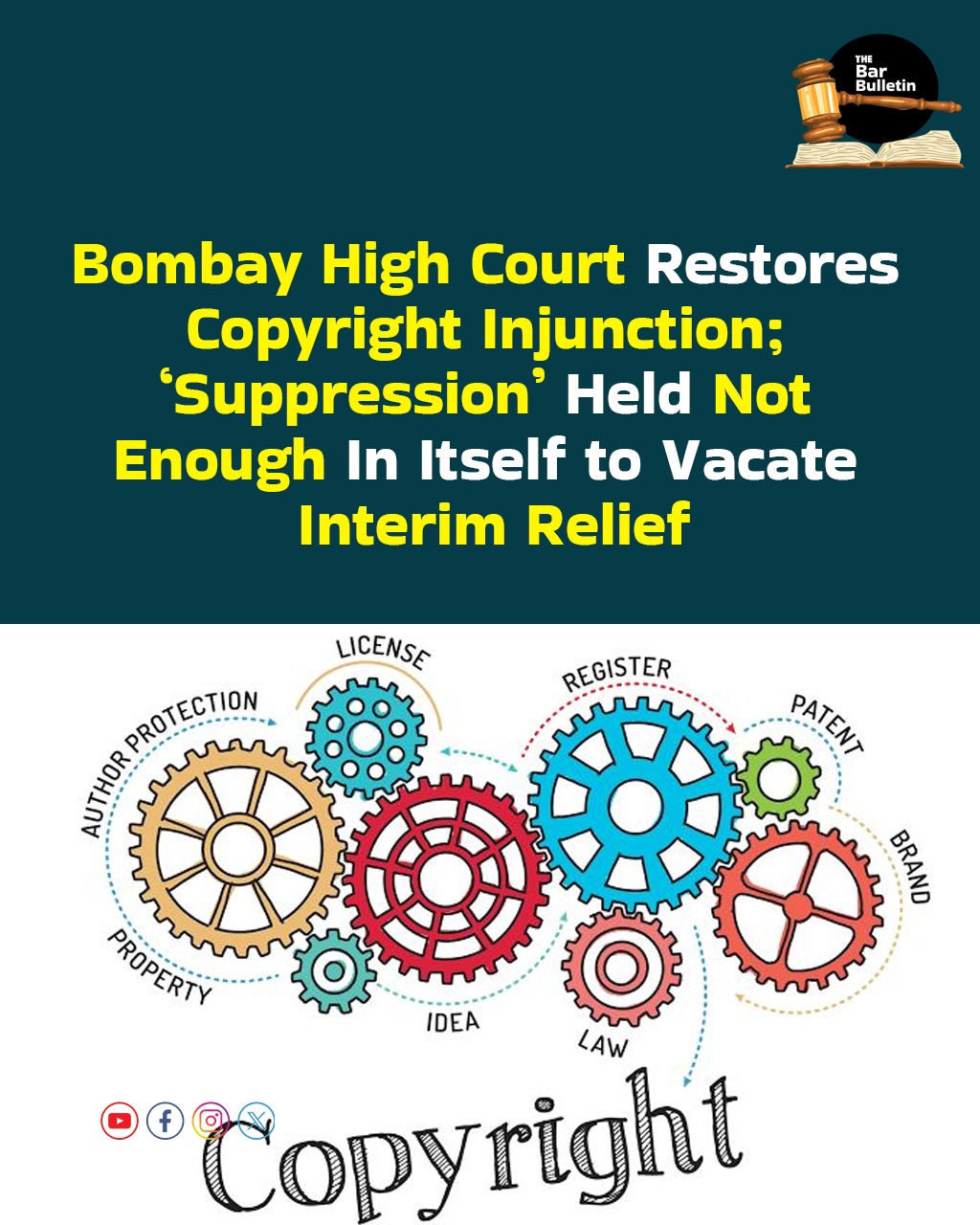The Bombay High Court allowed the appeal, setting aside the Single Judge’s order dated 13 June 2024 discontinuing ad-interim injunction, and restored the ex-parte copyright injunction originally granted to the Plaintiff on 19 March 2024.
The Plaintiff had sued the Defendants for infringement of the ‘ATYATI’ Device Mark (copyright and trademark), as well as for passing off, seeking permanent and interim injunctions. The Plaintiff had obtained an ex-parte ad-interim injunction against the Defendants, which was later discontinued by the Single Judge on grounds of alleged suppression of material information regarding the date of knowledge of Defendants’ use of the disputed mark.
The Plaintiff challenged this discontinuation, arguing that no deliberate suppression or misleading statement had occurred, and that the order was unjustified. The challenge was grounded in the allegation of unauthorized use and copying of its registered device mark and trademark by the Defendants in India.
The Defendants, on the other hand, argued that the Plaintiff knew about their mark use since 2022 but misrepresented the date of knowledge as October 2023 in the pleadings to secure the injunction. They based this contention on the Plaintiff’s own legal notices and the information available online and via LinkedIn, US trademark filings, and journal ads. The Single Judge noted the allegations of suppression and discontinued the ad-interim order, but did not address the Plaintiff’s entitlement to injunction on substantive merits.
The Division Bench comprising Chief Justice Alok Aradhe and Justice Sandeep V. Marne analysed “suppression” in two contexts: firstly, whether it influenced the substantive entitlement to injunction or merely the need for ex-parte relief; and, secondly, whether it influenced procedural urgency, i.e., non-issuance of notice.
The Court relied on judicial precedents to observe that suppression must be deliberate, material, and of a high degree to warrant vacating ad-interim relief. In this case, any “suppression” was found to be debatable and relevant primarily to the urgency/notice issue, not to the Plaintiff’s substantive right to relief.
The Court had discretion to continue or restore the injunction, and concluded that justice required reinstating ad-interim injunction until a final decision was reached. The Single Judge was directed to decide the interim injunction application expeditiously on its merits.
In result, the order dated 13 June 2024 was set aside, and the ex-parte ad-interim injunction of 19 March 2024 was ordered to continue pending decision on the interim application. The Court clarified that procedural suppression alone, absent high culpability or prejudice to merit, does not justify summary discontinuation of an injunction.
Cases relied on:
1. Kewal Ashokbhai Vasoya v. Suarabhakti Goods Pvt. Ltd., 2022 SCC OnLine Bom 3335
2. Shiv Kumar Chadha v. Municipal Corporation of Delhi, (1993) 3 SCC 161
3. Merico Ltd. v. KLR Nirmal Industries Pvt. Ltd., IA(L) No. 26759/2023
4. English precedent: Alexander Tugushev v. Vitaly Orlov EWHC 2031 (Comm)



